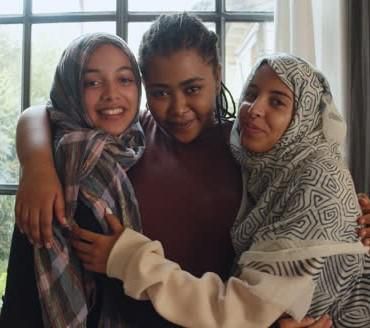Zakat, Iftar and other ways you, a non-Muslim, can partake in Ramadan
)
This holy month, marked by fasting, prayer, and acts of charity, also presents a unique opportunity for non-Muslims to engage with and understand the Islamic faith more deeply.
As the crescent moon heralds the start of Ramadan, many non-Muslims might wonder how they can participate in or support their Muslim friends, colleagues, and neighbors during this sacred time in a way that is both respectful and meaningful.
The story of intercultural friendship and understanding begins with awareness. Ramadan is not solely about abstaining from food and drink from dawn until sunset; it is a time for Muslims to cleanse the soul, focus on God, and practice self-discipline. For non-Muslims eager to partake in Ramadan respectfully, the journey starts with recognizing the significance of this period and the values it espouses.
Imagine a scenario where John, a non-Muslim, works closely with Amina, a practicing Muslim. John notices Amina's dedication and changes in routine as Ramadan begins. Curious and wanting to support his colleague, John takes the first step by educating himself about the dos and don'ts during Ramadan. This gesture of understanding and respect for Amina's beliefs fosters a deeper bond between them.
Participating in or observing Ramadan as a non-Muslim can be a profoundly enriching experience, emphasizing shared human values and the importance of community, empathy, and generosity. Here are some thoughtful ways to respectfully engage with Ramadan:
1. Learn about Ramadan
Educating oneself about the significance of Ramadan, its practices, and its cultural importance is essential. Knowledge fosters respect and enables non-Muslims to appreciate the depth and breadth of the month's spiritual and communal aspects.
2. Show Respect for Fasting Practices
Be mindful of those fasting around you. This includes refraining from eating or drinking in front of fasting Muslims, where possible, and being considerate of their schedule, especially around times of prayer and iftar, the evening meal with which they break their fast.

3. Engage in Charitable Activities
Charity, or Zakat, is a cornerstone of Ramadan. Non-Muslims can participate by contributing to food drives, volunteering at community centers, or supporting initiatives aimed at helping those in need, regardless of their faith.
4. Attend an Iftar
Being invited to an iftar is an honor. It’s an opportunity to experience Ramadan's communal spirit. If attending, bring a dish to share, ensuring it meets halal dietary requirements, as a gesture of respect and goodwill.
5. Foster Dialogue and Understanding
Use this time to engage in conversations about faith, traditions, and cultural practices. Expressing interest in learning about Ramadan can pave the way for meaningful exchanges that enrich understanding and mutual respect.
6. Reflect on Personal Growth
Ramadan is also a time for reflection and personal growth. Non-Muslims can use this period to reflect on their own lives, values, and the importance of compassion, patience, and empathy in their daily interactions.
By approaching Ramadan with an open heart and mind, non-Muslims can discover a profound sense of community and spirituality. It's about embracing the universal values that Ramadan represents—patience, charity, and empathy—thus, bridging gaps and building stronger, more inclusive communities. Through respectful participation and support, the story of Ramadan becomes one of shared human experience, fostering a world of greater understanding and compassion.
)
)
)
)
)
)
)